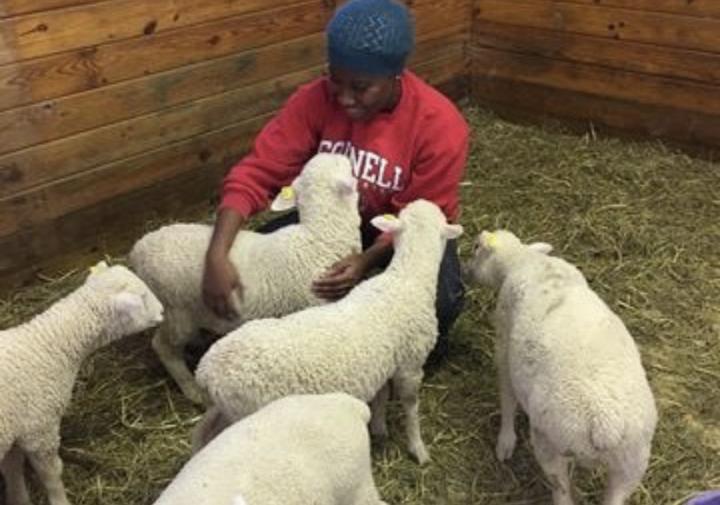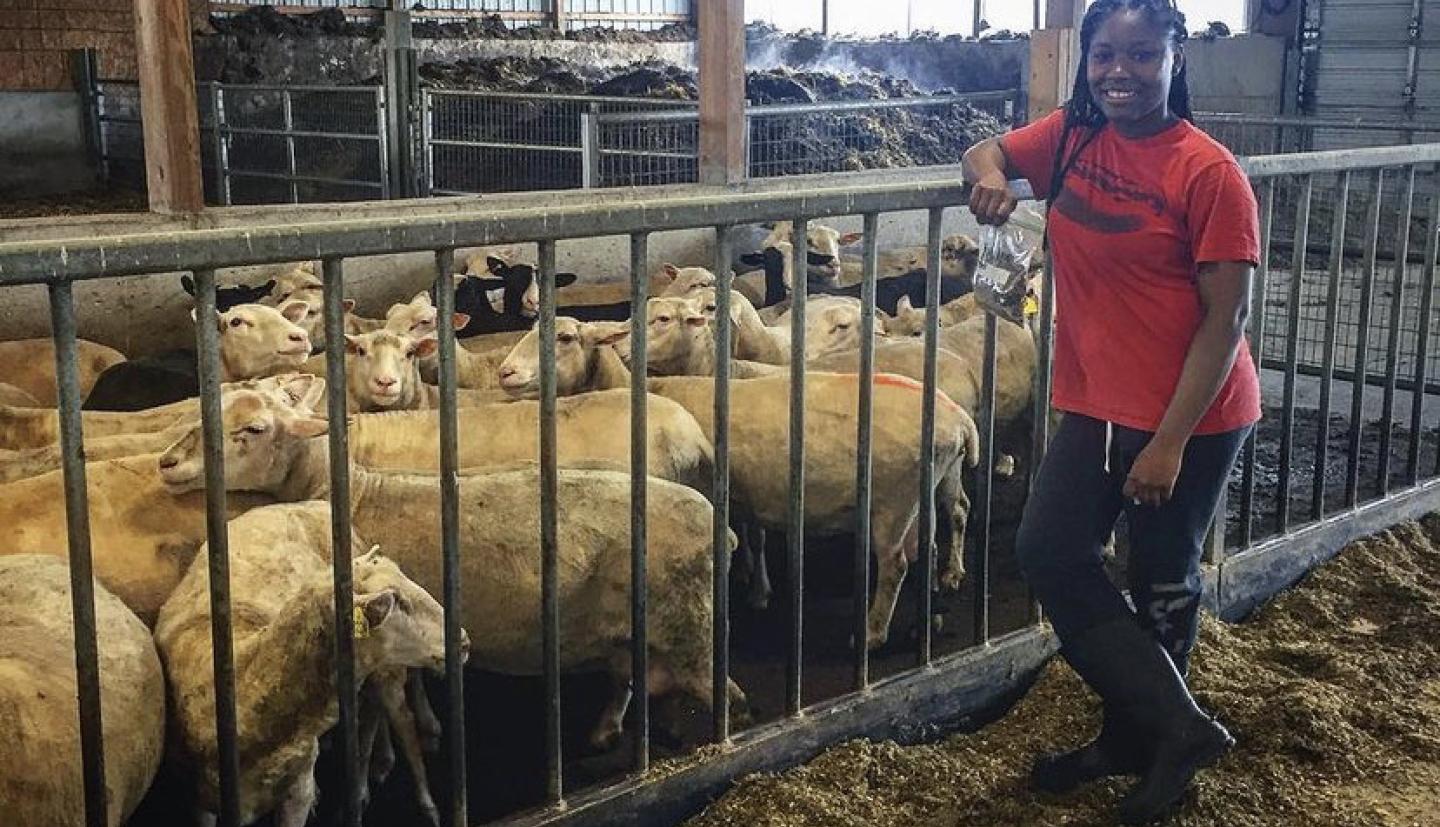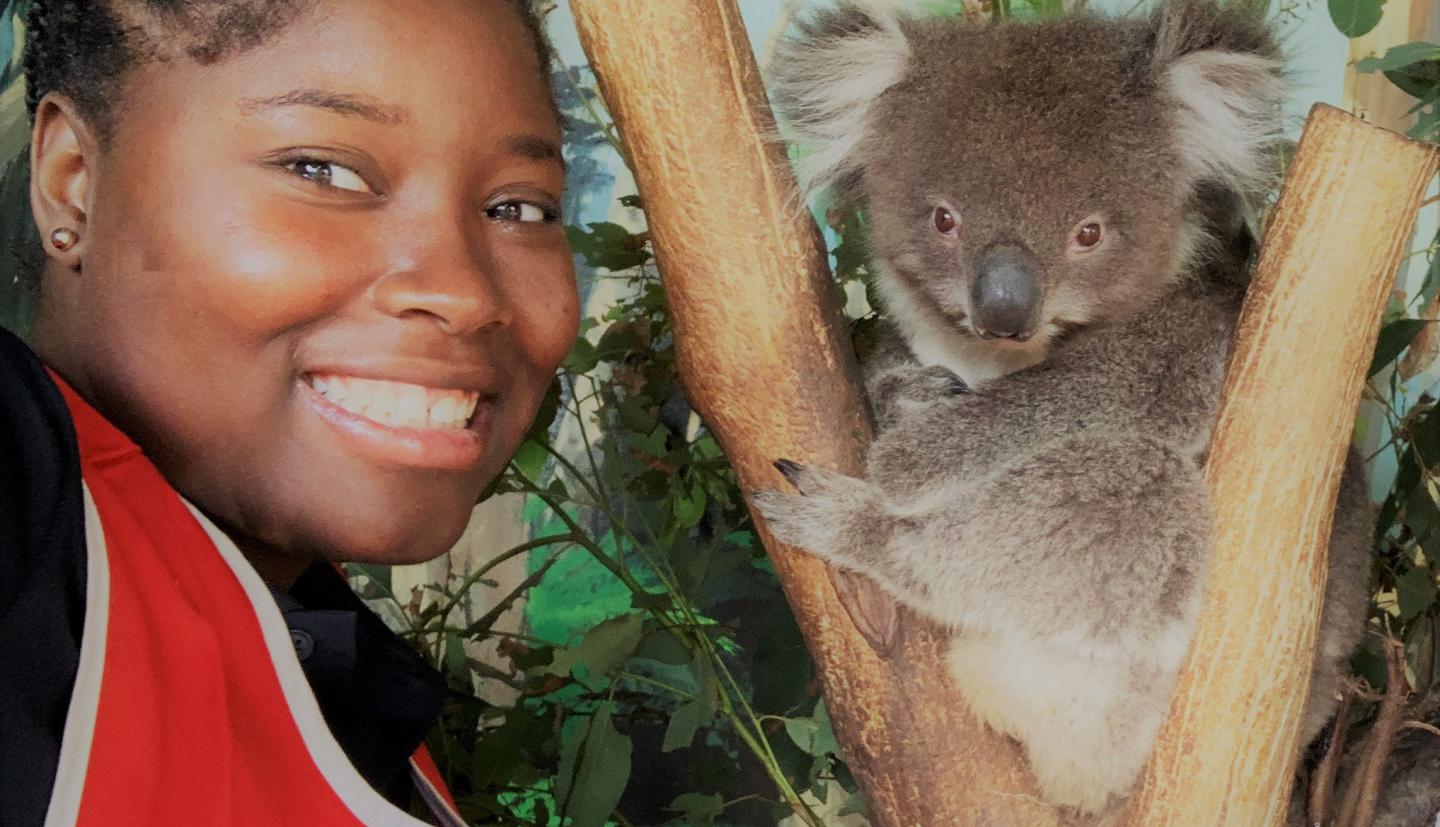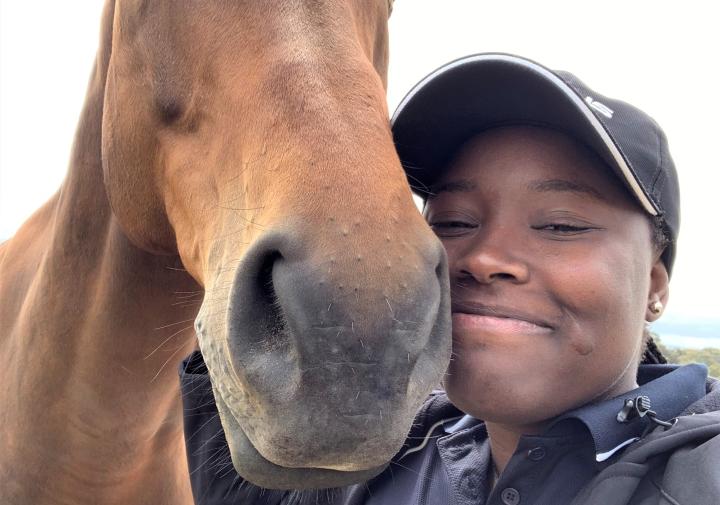Shadirah Shepherd graduated from Cornell in 2018 with a major in Animal Science. She is now entering her third year studying for a Doctor of Veterinary Medicine at the University of Melbourne. Shepherd reflects back on her time in Cornell’s Animal Science Program and the impact it has had on her career.

It was the morning of March 23rd, 2017, and I was alone in the Cornell Teaching and Research Barn, milking the sheep. The ewes were in the milking parlor, quietly chewing their cud and all the animals were waking up to greet the day. Around 7 am I was startled by a ewe showing signs of birth… they can be quite vocal.
That semester I was taking a sheep management course and had watched a birth simulation, but never imagined I’d birth a sheep all on my own.
After close inspection, I realized the lamb was coming out the wrong direction. Like any Animal Science student, I took a deep breath and put my arm into the ewe to turn the lamb around. After a few contractions, the lamb came out and I started clearing her airways. I checked all her vitals to find she was healthy and well.
That little lamb, who I named Amber, helped me realize I was capable of becoming a veterinarian.



My interest in animal science started when I was young. My Grandmother and I frequented local zoos and wildlife sanctuaries where I first realized I wanted to care for animals as a career. That spark carried me to Cornell’s Animal Science program where I was accepted into the class of 2018.
During my junior year, I joined Dr. Mike Thonney’s Cornell Sheep Program where I was introduced to Niko Kochendoerfer, Postdoctoral Fellow in Cornell CALS Department of Animal Science. I had never worked with sheep before, but Niko welcomed me into the team and before long, I was milking sheep twice a day.
Niko was a wonderful mentor! She recognized my hard work and saw that I had a talent working with animals. After a few months, I was asked to join Niko’s research project examining the influence of breed composition of ewes milk yield, quality, and lactation persistency. We started visiting a large-scale sheep and goat dairy farm every week to collect feed and fecal samples to test in our labs back on campus. It was the most intense work I’d ever done during my time at Cornell, but I loved every second of it! Niko and Dr. Thonney provided unending support and encouragement and I began to see a future for myself as a veterinarian.

After graduating from Cornell in 2018, I worked at a vet hospital in Baltimore, Maryland to gain clinical experience. My first love is for wildlife, so I reached out to the Maryland Zoo to see if I could shadow their veterinary team. After my first day, I was told I could shadow indefinitely so I jumped in my khakis and dove in! On any given day I was observing giraffe training, checking vitals for cheetahs, and working with the elephants. While I was shadowing, I connected with a number of vet students who shared their experiences with me as I began to apply to vet schools.
In 2020 I was accepted to the Doctor of Veterinary Medicine program at the University of Melbourne! I’m now entering my third year and have completed numerous placements working with sheep, retired racehorses, and Australian wildlife, including koalas, reptiles, kangaroos, and even dingoes. I might get to swim with dolphins today, but it’s looking a bit windy, so we’ll have to wait and see.


Once I graduate, I’d like to become a veterinarian working in meat processing facilities. I’m passionate about animal welfare so I want to make sure an animal’s last moments of life are as peaceful and humane as possible. Veterinarians can influence policy in this sector. I want to make a difference for animals in our food system whether they’re in front of me for a health inspection or impacted by a policy I influenced.
As a Cornellian, you will always have support, even on the other side of the world! Looking back, the hands-on undergraduate experiences in Cornell’s Animal Science program have provided so many applicable skills for vet school. I have Niko and Dr. Thonney to thank for encouraging me to follow my dreams.
Keep Exploring

Field Note
- Dairy Fellows Program
- Animal Science
- Agriculture

News
- Animal Science
- Animals

We openly share valuable knowledge.
Sign up for more insights, discoveries and solutions.


